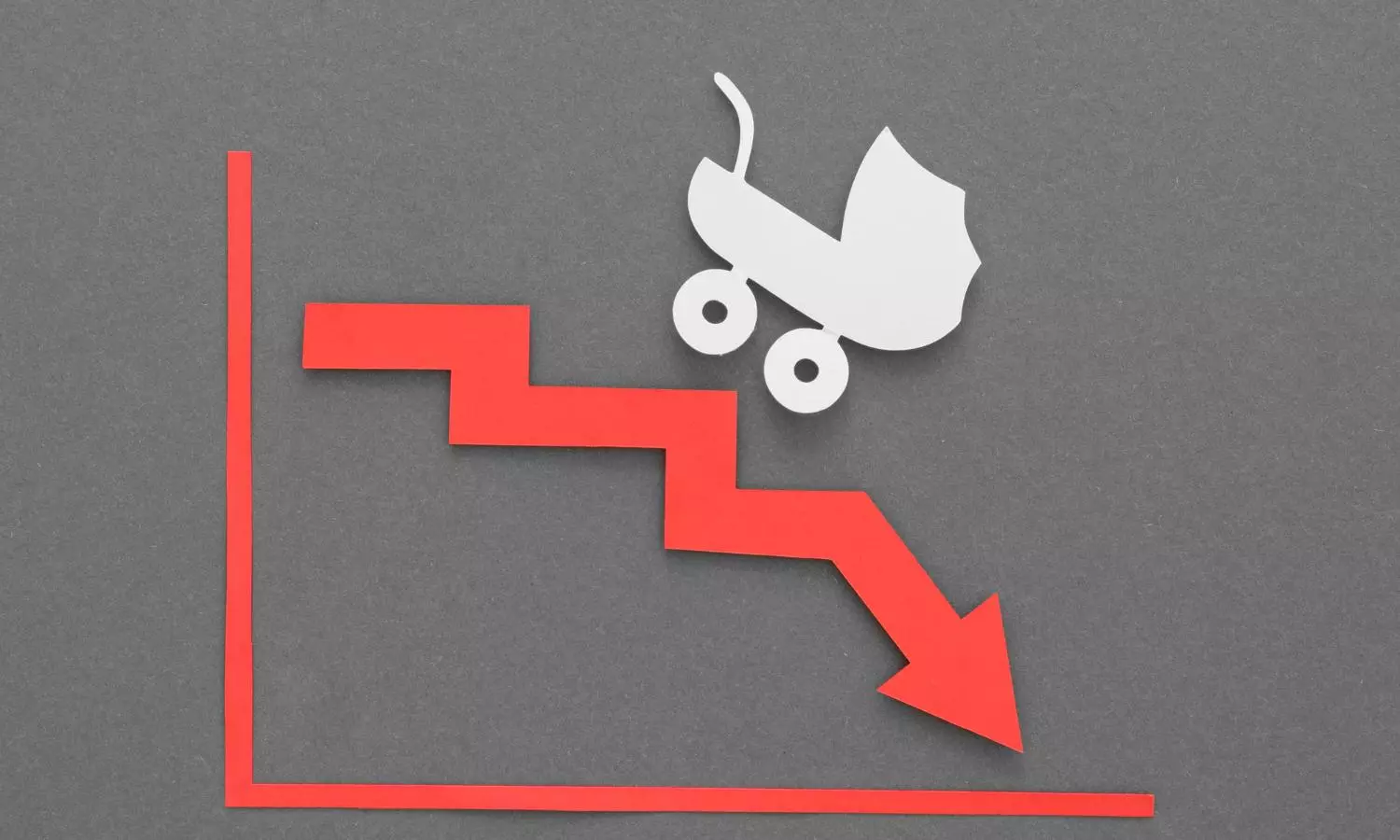
Four southern states record higher infertility rates than north: Study
Apart from lifestyle factors, the southern states also have early ages of female sterilisation, which may explain the high infertility levels, says the study

The southern states of Kerala, Tamil Nadu, Karnataka, and Telangana have higher infertility rates than north Indian ones, a recent study has revealed. It has linked factors such as age of marriage, biological factors, and lifestyle factors to infertility and said many of the causes were preventable.
These are not the only states with low fertility. The study, published in PLOS ONE journal, revealed that Goa, Delhi, Sikkim, and Himachal Pradesh, and the Union Territories of Lakshadweep, Daman and Diu, and Andaman and Nicobar also show similar infertility trends.
The study, titled Surging trends of infertility and its behavioural determinants in India, used secondary data gathered from four rounds of the National Family Health Survey (NFHS) carried out from 1992 to 2016 to estimate primary and secondary infertility levels in India.
Causes of infertility
The study, published by Sampurna Kundu, Balhasan Ali, and Preeti Dhillon, pointed out that many causes of infertility are preventable. Some of these are sexually transmitted infections, health, lifestyle factors, healthcare practices, and environmental and socioeconomic factors.
“The infertility rate is higher in developing countries due to sexually transmitted infections and a lack of adequate and modern medical facilities. Sexually transmitted diseases are a major cause of infertility. An increase in the number of sexual partners would lead to higher infertility,” it says.
Citing previous studies, the report points out that even the “living environment” of a couple, such as frequent exposure to heat noise, etc., can have an adverse effect on their reproductive life, and that “pollution, water contamination, and chemical use in food and water also increase infertility”.
It adds that excess weight can “have a major impact on menstruation, infertility, miscarriage, pregnancy and labour”. At the same time, “smoking, alcohol consumption, induced abortions, prior contraceptive use” also elevate the risk of infertility.
Among the states, Goa has the highest level of infertility, the study found, followed by the four South Indian states stated above. The study pointed out that lifestyle factors like smoking and drinking and the related disease of diabetes are highly prevalent in Goa and some of the southern states, “which may explain the high levels of infertility”.
The southern states also have early ages of female sterilisation and low fertility than northern states. For instance, while female sterilisation prevalence is 34.8% in Bihar, it is 46.6% in Kerala, it argued.
Greater burden on women
Pointing out that infertility has its “social, psychological, cultural, religious, and economic consequences”, the report added that women suffer more due to childlessness compared with men. Women “always bear the burden of psychological, family and community pressure…. Infertile couples experience a sense of failure and exclusion due to expectations of society, family, faith, and culture,” it said. The report cited previous studies revealing higher separation and divorce rates among infertile couples, domestic violence, and social stigma.
“The estimates of the Census of India (1981, 1991, 2001) show that infertility in India has increased among reproductive-age couples. It has risen from 13 per cent in 1981 to 16 per cent in 2001 among ever-married women. It was observed that the infertility rate has declined between 1998–99 and 2005–06. Furthermore, another study from India found that about eight per cent of currently married women suffered from primary and secondary infertility…,” the study said.
Balhasan Ali, one of the authors of the paper, told The New Indian Express that the infertility issue is serious yet neglected in India, especially the south. According to him, the high infertility rate in the southern states “may also contribute to overall total fertility rate decline”.
